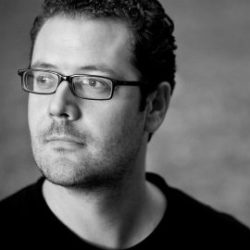Sometimes health tragedies like cancer and/or birth defects happen, and we don’t know why. Sometimes we do know why, but, due to a host of issues, we are unable to stop them. Or if we do know what to do to help prevent further tragedies, we may run up against conflicts, pushback by those in power, and ignorance or a lack of initiative for change by the public at large. Often a documentary can be used to create awareness and focus the conversation in the midst of what seems like a tide of status−quo maintaining market forces. The Devil We Know, which premiered at the 2018 Sundance Film Festival, seeks to take on one of these large issues, and the task is quite daunting indeed.
The DuPont corporation, located in Parkersburg, West Virginia, has been a leader along with 3M in developing chemicals related to Teflon products. While it seems like a miracle product (nothing sticks to it), there are unintended consequences to using and developing the chemicals necessary to produce it. Apparently, this chemical (it’s called C8) makes its way from the waterways, or perhaps the products themselves, into our bloodstreams. In fact, it is found in the blood of 99.7% of all Americans. In Parkersburg, the problem is more pronounced, as evidenced by deaths and deformities in the local animal population and a high rate of cancer throughout the region. Filmmakers Stephanie Soechtig and Jeremy Seifert seek to investigate just what is going on with C8 and Teflon−like products as well as get to know some of the people in Parkersburg who have been exposed to this chemical.
 As you can imagine, most of these people are not doing well. In the film, we are introduced to a myriad of subjects, some former workers in the DuPont plant, some just residents of the town. Most have had cancer (many in the town have already succumbed to cancer), while others have had problems with birth defects. What they all have in common is a high level of C8 in their blood, like Buckey Bailey, who was born with only one nostril and had to have over 30 reconstructive surgeries as a baby. There are a set of thoughtful yet heartwrenching scenes in which Bailey, now an adult, agonizes along with his wife over the decision to have a child, knowing that there is something like a 50% chance that he could pass on his condition. While there have been some attempts to curtail the flow of chemicals onto the products we buy and into the water that we drink, the settlements and judgments in the court system so far have been minimal (a $16 million settlement for a multi−billion dollar company is a drop in the bucket).
As you can imagine, most of these people are not doing well. In the film, we are introduced to a myriad of subjects, some former workers in the DuPont plant, some just residents of the town. Most have had cancer (many in the town have already succumbed to cancer), while others have had problems with birth defects. What they all have in common is a high level of C8 in their blood, like Buckey Bailey, who was born with only one nostril and had to have over 30 reconstructive surgeries as a baby. There are a set of thoughtful yet heartwrenching scenes in which Bailey, now an adult, agonizes along with his wife over the decision to have a child, knowing that there is something like a 50% chance that he could pass on his condition. While there have been some attempts to curtail the flow of chemicals onto the products we buy and into the water that we drink, the settlements and judgments in the court system so far have been minimal (a $16 million settlement for a multi−billion dollar company is a drop in the bucket).
Your first inclination after you watch the film will be to remove any Teflon pots or pans from the house, and the next should be to take action in holding these corporations accountable, in whatever means that might be. One thing is certain: this is a large health and environmental issue that most assuredly deserves our attention.
Justin Wells is a filmmaker working on Hollywood productions to pay the bills and pursuing his love of documentary films in his spare time. His upcoming book, How to Film the Truth: The Story of Documentary as a Spiritual Journey, will be published soon in the Reel Spirituality Monograph Series with Cascade Press. Follow along with Justin and see what’s he watching and working on now on his website.

